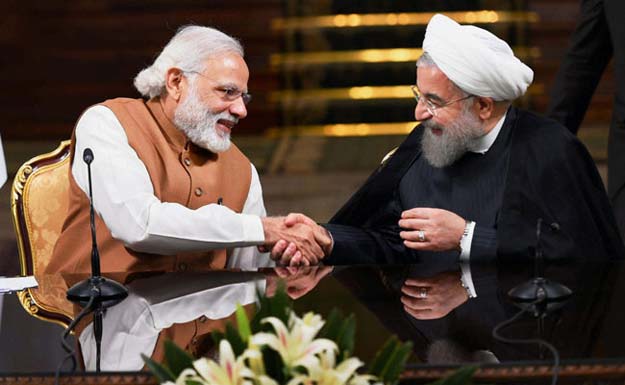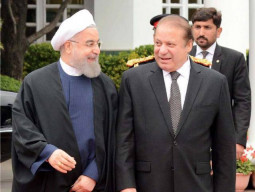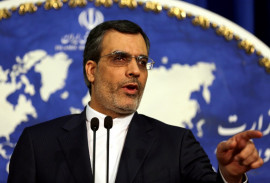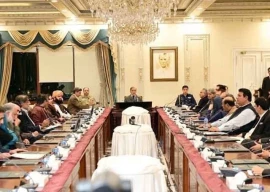
While this blissful moment was being celebrated in our part of the region, India, Iran and Afghanistan were signing an accord to build a trade and transport corridor, designating Chabahar port as the hub. Now, this is going to be what I call the ‘game changing of the game changer’ because developing the Chabahar port will not only allow New Delhi to bypass Pakistan (which has a limited trade relationship with India due to diplomatic tensions and territorial disputes) and access global markets, but also counter China’s expanding influence in the Indian Ocean region. Studies indicate that the corridor at Chabahar could bring down costs as well as the time taken to transport cargo trade to Europe by approximately 50 per cent. India does not have direct land access to Afghanistan and through it, to Central Asia, because of the presence of Pakistan. In addition, with the Chinese funding the strategic port in Gwadar, which India believes will grant Beijing access to the Indian Ocean region, New Delhi began negotiations with Tehran more than a decade ago to develop the Chabahar port to counter the Chinese moves in an area which India sees as part of its sphere of influence.
India in deal to turn Iran port into trade hub
India will be spending around $500 million to develop the port in Iran’s south-eastern province of Sistan-Balochistan as a regional trade hub by introducing an alternative land-sea route for trade with Afghanistan and significantly, Chabahar is going to become a prime symbol of cooperation between Iran and India. From the Chabahar port, the existing Iranian road network can be linked up to the city of Zaranj in the Nimruz province of Afghanistan. Zaranj serves as the border crossing between Afghanistan and Iran, which is of significant importance to the trade route between Central Asia, South Asia and the Middle East. In 2009, the Zaranj-Delaram road was constructed by India at a cost of Rs680 crore — a 135-mile-long, two-lane road in Afghanistan, connecting Zaranj near the Iranian border with Delaram in the neighbouring Farah province. From Zaranj, the highway connects to Zabol across the border in Iran. Zabol — the capital of Sistan-Balochistan province of Iran is well-connected by road to the Chabahar port. The highway thus provides land-locked Afghanistan an alternative way to access the Arabian Sea and the Persian Gulf, instead of relying solely on the unstable Pakistani routes. The road is much shorter and more stable than any of the routes in Pakistan, making it perhaps the most efficient means of reaching Afghanistan. The future plans for Iran-India-Afghanistan cooperation include an international North-South Transport Corridor through Iran to Russia and Europe.
Chabahar-Gwadar port contest does not end in a tie
Both India and Pakistan were admitted as full members of the Shanghai Cooperation Organisation (SCO) last year and are expected to join it this year. This can pave the path towards strengthening Pakistan-India relations. It provides an opportunity for the two countries to resolve their problems and to work towards the promotion of neighbourly relations and cooperation. From Pakistan’s perspective, this can only be conceivable if the two major powers of the SCO, namely China and Russia, realise the vision of fostering relations amongst regional countries. Also, there is a dire need of balancing civil-military relations in Pakistan to deal with the dynamics of the fast-changing international landscape — else, Pakistan will remain in danger of not accruing the full benefits of recent regional developments that are being claimed to be game changers.
Published in The Express Tribune, May 26th, 2016.
Like Opinion & Editorial on Facebook, follow @ETOpEd on Twitter to receive all updates on all our daily pieces.





























-(1)1714378140-0/AliAminMaryam-(4)-(1)1714378140-0-270x192.webp)








COMMENTS (106)
Comments are moderated and generally will be posted if they are on-topic and not abusive.
For more information, please see our Comments FAQ